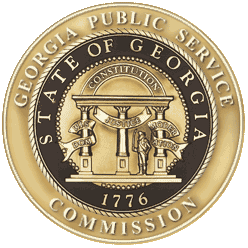Nuclear Reactors 598 - Nuclear Power Is Too Expensive - Part 2 of 2 Parts
Part 2 of 2 Parts (Please read Part 1 first)
At this time there is only one nuclear power plant being constructed in the U.S. in the state of Georgia. It is now estimated that it will cost twenty-five billion dollars to complete and it had to be supported by twelve billion dollars in federal loan guarantees. The Georgia Public Service Commission stated that even a delay of a few months could raise the cost so much that the project might have to be abandoned.
The problem with the rising cost of nuclear power is not confined to the U.S. In Britain, the Hinkley Point C power plant is the first new nuclear power plant to be constructed there in more than twenty years. The original cost projects of sixteen billion dollars has risen by more than fifty percent to twenty-six billion dollars.
France has been getting more than seventy-five percent of its electricity from nuclear power for years. Even with all their experience in nuclear power, they are unable to construct a next generation nuclear power plant at a reasonable cost and on schedule.
EDF is the French owned nuclear utility. They have just announced that there will be another schedule delay and additional costs in the construction of their first European Pressurized Reactor. The original estimated cost was about four billion dollars. The latest estimate is twelve and three quarter billion dollars. This is more than three times the original estimate.
There were discussions in South Africa about the need for nuclear power. Secret conversations with Russia about building a nuclear power plant were revealed and caused a scandal. The critics of nuclear power in S.A. say that it is not needed and is far too expensive. Other African countries are been courted by the Russian nuclear company, Rosatom but, once again, there are critics who point out that the costs are too high, the demand is too low and infrastructure is lacking to make it practical to turn to nuclear power.
Vietnam and Russia were discussing the construction of a nuclear power plant in Vietnam by Rosatom. It would utilize something that the Russians call the Build-Own-Operate model. The basic concept here would be to have Rosatom construct, staff, and fuel the new plant. Russia would own it and would deal with removal of spent fuel. There would also be a massive loan from Russian banks for construction with the money going to Rosatom, of course. The Vietnamese decided against the project and it was cancelled.
All over the world, the use of nuclear power in developed nations has been declining except for Russia and China who are actively building reactors for internal power generation and export to other nations. The focus of their sales efforts have largely been on the developing world. Massive amounts of money, international status and possible nuclear weapon development are supporting the international nuclear power market. Problems with governmental corruption, incompetence, and possibilities for the proliferation of nuclear weapons are strong reasons for the developing world to reject nuclear power.
In the end, it will be economics that will destroy nuclear power. Hopefully, the reality that nuclear power is too expensive and dangerous will sink in and the world’s infatuation with nuclear power will end.
